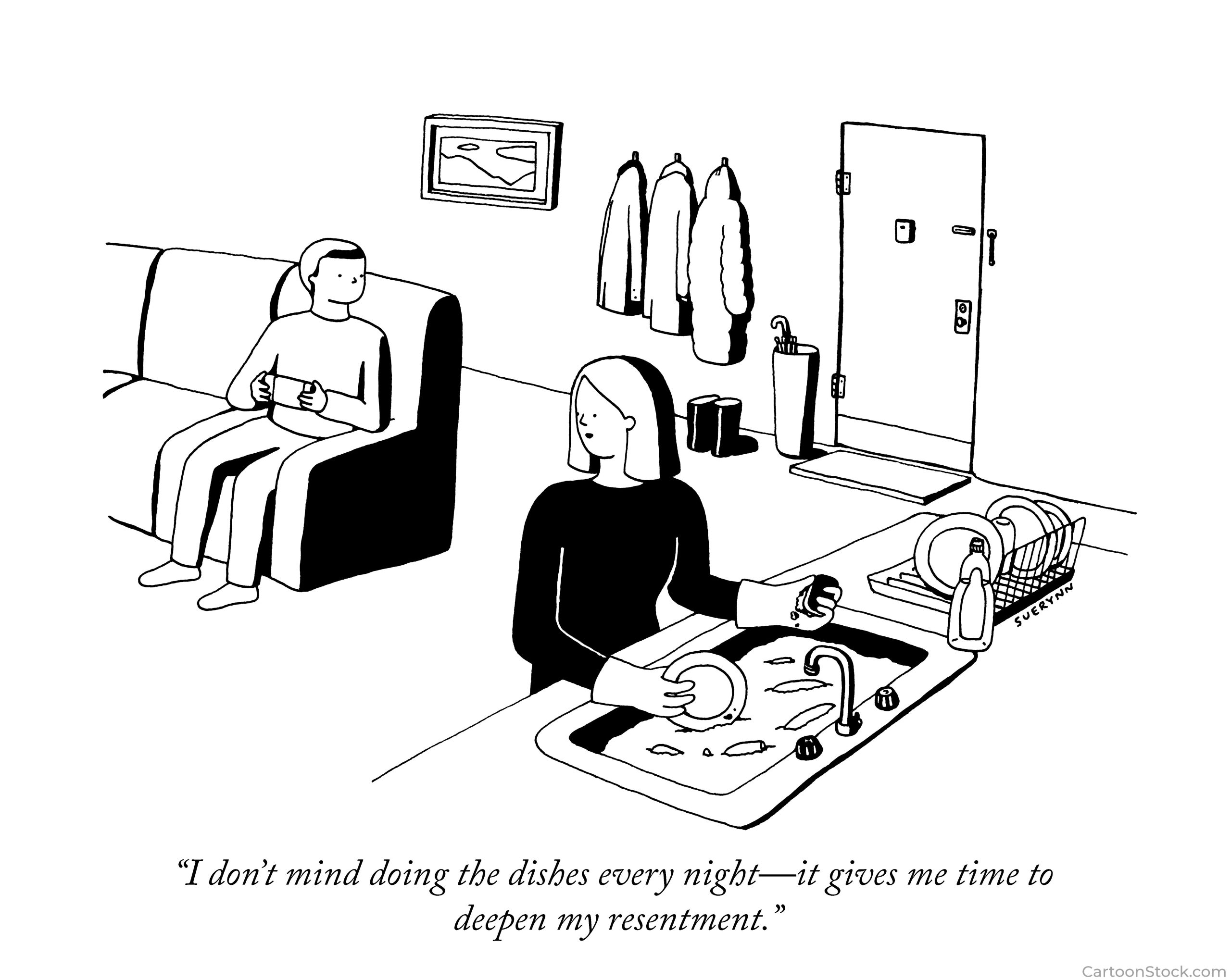With vote totals so far removed from the amount required to remove a president from office, it would be easy to see Senator Mitt Romney’s one dissenting vote from his party this week as insignificant.
The visceral response across diverse Americans says otherwise. The most obvious and predictable emotion was the same feeling just about everything seems to provoke in our nation these days: more public anger, hostility, derision, etc.
Popular themes from leaders of the online mob include plenty of anti-Mormon barbs, gripes about his past campaign (“The same Mitt Romney that was an absolute JOKE when he ran for president? How quickly people forget”), insistence this is all really about sour grapes ( “forever bitter that he will never be POTUS”), traitorous accusations (“Mitt Romney and John McCain should call themselves democrats . . . He was too weak to beat the Democrats then so he’s joining them now”)—and, of course, classic attacks on both the intellect (“They were crying because they couldn’t believe that someone as stupid as Mitt Romney exists”) and his sincerity. (“This is so phony. He’s covering for his own tail.”)
Some of this frustration is perhaps understandable, given how helpful a unanimous vote of acquittal would have been for the President and his supporters in the face of such sustained antagonism from the left. Yet the low-blow crassness of all the pushback has been predictably disappointing—embodied by Donald Trump Jr.’s posting of an unflattering picture of Romney wearing high-waisted jeans, with such-a-clever caption: “Mom Jeans, Because you’re a pussy.”
Partisan emotion also arose on the other side, of course—especially those who used Romney’s decision to condemn all who voted to acquit—aka, “Finally a man of conscience in the senate . . . Finally a Republican with a solid backbone . . . Romney showed them all up for the cowards they are by continuing to support a corrupt president . . . How can other GOP senators watch Romney do that and not feel immense shame at their own cowardice? . . . We see that some Americans, at least, are still interested in the truth. . . . Romney is the only Republican with a moral compass. Shame on the rest.”
Like thoughtful commentators and Romney himself have underscored, however, many thoughtful, good-hearted people on both sides of the decision were seeking to follow their own conscience. Even so, like the vote total itself, it’s tempting to write off entirely the entire spectrum of reaction to Mitt’s vote as yet another predictable reflection of tribalized, partisan division.
That would be, however, missing something important.
Liz Joyner, an Episcopalian, left-of-center woman who leads the Village Square, one of America’s premiere red-blue dialogue efforts wrote, “God Bless Mitt Romney. He is holding his conscience and oath. I am weeping at what he has said. The best among us. An act of deep courage whatever you think. History will hold him up as a man of the highest conscience.”
Liz and others have seen their audiences for the work of political bridge-building shrinking rapidly during the last three years. So much of the delicate work of rapprochement depends on a willingness to sit with discomfort, maintain curiosity, and stay in relationship—qualities that are evaporating on both sides of the political spectrum.
That perhaps explains some of her emotion at Romney’s speech.
Liz was not alone. Many online comments referenced surprising emotion—“I cried” . . . “There’s a lump in my throat. Thank you Mr. Romney” . . . I have never had a speech move me like this before. This was a spiritual awakening.”
And many legislators themselves acknowledged poignant emotion. Senator Blumenthal said afterwards, “There were tears in my eyes . . . what I thought was, I really would like my four children to be like that. . . . As cynical and distrustful as many Americans are about their political leaders understandably, there really is some reason for hope. . . . I hope it gives us some hope and faith in the resilience in our democracy.”
That’s precisely what many Americans are saying online, such as one woman who wrote, “Mister Romney, you just gave me hope and peace.”
Still, the question remains: Why would a single vote with meaningless statistical implications invoke so much positive, hopeful emotion for some people?
There are at least three good reasons for that. First, Senator Romney’s decision provides a counterexample against one especially despairing narrative that has taken hold in America: the idea that no one is persuadable anymore and no one follows any loyalty bigger than their own team, described by David Brooks last fall as “the unvarnished tribalization of national life.”
In an article that noted the many complexities of competing narratives at the heart of the Kavanaugh hearings, Brooks pointed out how all of this nuance might have called forth some “uncertainty” and “intellectual humility” from leaders on both sides. Instead: “reactions to the narratives have been determined almost entirely by partisan affiliation”—with those who support Democrats monolithically embracing the accuser’s account and dismissing Kavanaugh’s, and vice versa on the other side—with “few exceptions.”
That’s a discouraging reality, if it’s true (especially all the time—with no counter examples). Mitt provided one.
Even those who vehemently disagree with his decision cannot deny that.
Secondly, Senator Romney’s choice reassured some Americans that our institutions of government can still function. In an age of “a complete breakdown in the legitimacy of our public institutions,” David Brooks again notes that from the Supreme Court to Congress itself, Americans no longer see these places where “where justices dispassionately rule on the Constitution”or “senators deliberate on nominees.” Instead, once again, we’ve come to expect “predictable party-line votes”:
The members of the public no longer reason with one another. They fall into predictable party-line formation and then invent post-hoc, bad-faith rationalizations to give cover to their ideologically driven positions.
Against this backdrop, there’s something encouraging about seeing someone not merely “go along with the team.”
Among other things, that has meant rare displays of respect and affection across the political aisle: “From a lifelong Democrat Mitt u have my respect.”
This also helps to puncture the widely popular and especially damaging narrative that insists upon President Trump as the moral representative of virtually all Christians in America today— corresponding with accusations of being “hypocritical, secretly racist, etc.”
However one might feel about Romney’s conclusion, it’s hard—even impossible—to write it off driven by self-interest. Become a pariah in his own party? Provoke wrath against even his own family members?
Romney’s decision was the very opposite of the calculated self-interest we’ve come to take for granted in our political leaders—which brings us to a final reason for all the emotion.
If Romney’s own words are to be taken seriously (something hardly taken for granted in our age of suspicion), this excruciating decision that woke him up well before dawn for weeks, hinged on something that overrode many other legitimate fears (fears that undoubtedly shaped many other Republican decisions).
Knowing full well the blowback and “punishment” that would come not just to him but to his family, Romney explained that he had to do what felt right, “let the consequences follow.” It was the dictates of his own conscience that the Senator obeyed—reflecting a desire to uphold his sense of duty before God.
More than anything, that may be the aspect of Mitt’s vote that shook America the most: a raw illustration of someone sticking their neck out for what they believe is right—an imperative he proved can still be bigger than self-interest, family interest, and tribal “stick with your team, Mitt!” demands.
What if America could once again wake up again to that—a motive higher than whatever sates our appetites or stokes our smoldering anger?
If that were to happen once more in this great country, who knows—it might just change everything.

















